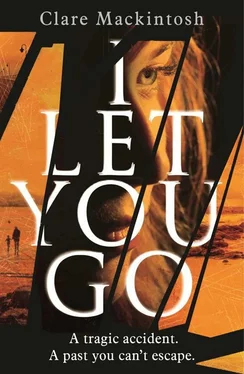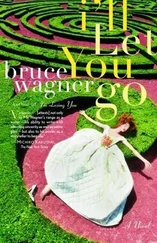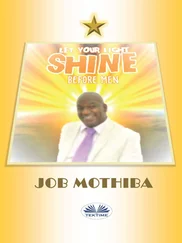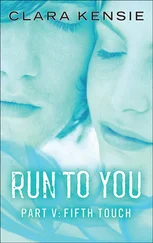‘Emma,’ she said. She didn’t ask mine and I wondered how often she did this, in anonymous hotel rooms in anonymous cities.
When she had gone, I called you and let you tell me about your day; about how pleased the gift-shop owner had been with the vases, and how you couldn’t wait to see me. You told me you missed me, and that you hated us being apart, and I felt the reassurance seep into me and make me safe again.
‘I love you,’ I said. I knew you needed to hear it: that it wasn’t enough for you to see everything I did for you; the way I looked after you. You gave a tiny sigh.
‘I love you too.’
Doug had obviously worked hard on the client over dinner, and from the jokes at our morning meeting it was clear they had gone on to a strip club. By midday we’d clinched the deal, and Doug was on the phone to the bank to reassure them we were solvent once more.
I had the hotel receptionist call me a taxi. ‘Where will I find the best jewellery shops?’ I asked.
He gave a knowing smile that irritated me. ‘A little something for a lady, sir?’
I ignored him. ‘The best place?’
His smile became a little more fixed. ‘Faubourg Saint-Honoré, monsieur.’ He remained solicitous as I waited for the taxi to arrive, but his presuming air cost him a tip, and it took me the full cab ride to shake off my annoyance.
I walked the length of Faubourg Saint-Honoré before settling on a small jeweller’s unimaginatively called ‘Michel’, where black trays were studded with sparkling diamonds. I wanted to take my time choosing, but staff in discreet suits hovered around, offering assistance and suggestions, and I found it impossible to concentrate. In the end I chose the biggest: a ring you couldn’t possibly refuse. A square-set white diamond on a simple platinum ring. I handed over my credit card and told myself you were worth it.
I flew home the following morning, the small leather box burning a hole in my coat pocket. I had it in mind to take you out for dinner, but as I opened the front door you ran to me and squeezed me so tight that I couldn’t wait another moment.
‘Marry me.’
You laughed, but you must have caught the sincerity in my eyes, because you stopped and put your hand to your mouth.
‘I love you,’ I said. ‘I can’t be apart from you.’
You didn’t say anything, and I faltered. This hadn’t been part of my plan. I had expected you to fling your arms around me, kiss me, to cry, perhaps, but above all: to say yes. I scrabbled for the jewellery box and thrust it into your hand. ‘I mean it, Jennifer. I want you to be mine, always. Say you will, please say you will.’
You gave a tiny shake of your head, but you opened the box and your mouth fell open a fraction. ‘I don’t know what to say.’
‘Say yes.’
There was a pause long enough for me to feel the fear in my chest that you might refuse. And then you said yes.
34
A metallic thud makes me jump. After DI Stevens left my cell last night, I stared at the flaking paint on the ceiling, feeling the cold seep through the mattress from the concrete plinth below until sleep crept up on me unwittingly. As I push myself upright on the bed, my limbs ache and my head pounds.
Something rattles at the door, and I realise the thud was the drop of the square hatch in the centre of the door, through which a hand is now thrusting a plastic tray.
‘Come on, I haven’t got all day.’
I take the tray. ‘May I have some painkillers?’
The gaoler is standing to the side of the hatch, and I can’t see her face, just a black uniform and a straggle of blonde hair.
‘The doctor’s not here. You’ll have to wait till you get to court.’ She has barely finished speaking before the hatch slides up with a clunk that echoes round the cell block, and I hear her heavy footsteps retreating.
I sit on the bed and drink the tea, which has slopped messily on to the tray. It’s tepid and sugary but I drink thirstily, realising I have had nothing since lunchtime yesterday. Breakfast is sausage and beans in a microwavable container. The plastic has melted around the edges, and the beans are crusted with bright orange sauce. I leave the offering on the tray with my empty cup and use the toilet. There is no loo seat, only a metal basin, and sheets of scratchy paper. I rush to finish before the gaoler comes back.
My abandoned food is long cold by the time I hear footsteps again. They pause outside my cell and I hear the sound of keys jangling, then the heavy door swings open and I see a surly girl barely into her twenties. The black uniform and greasy blonde hair mark her out as the gaoler who brought my breakfast, and I indicate the tray resting on my mattress.
‘I couldn’t eat it, I’m afraid.’
‘I’m not surprised,’ says the gaoler, with a snort of laughter. ‘I wouldn’t touch it if I was starving.’
I sit on the metal bench opposite the custody desk and put on my boots. I have been joined by three others: all men, and all dressed in tracksuit bottoms and hooded tops so similar that I think at first they are wearing some kind of uniform. They sit slouched against the wall, as at home here as I am out of place. I twist around to see the myriad notices on the wall above our heads, but none of it makes sense. Information about solicitors, interpreters, offences ‘taken into consideration’. Am I supposed to know what is happening? Each time a wave of fear hits me, I remind myself what I did, and that I have no right to be frightened.
We wait for what must be half an hour or more, until a buzzer sounds and the custody sergeant looks up at the CCTV screen on the wall, now filled with a large white lorry.
‘Limo’s here, lads,’ he says.
The boy next to me sucks his teeth and mutters something I can’t make out and don’t want to.
The custody sergeant opens the door to a pair of Reliance security officers. ‘Four for you today, Ash,’ he says to the male officer. ‘Hey, City took a bit of a pounding last night, didn’t they?’ He gives a slow shake of his head, as though in sympathy, but he is grinning broadly, and the man called Ash thumps him good-naturedly on the shoulder.
‘We’ll have our day,’ he says. He glances across at us for the first time. ‘Got the paperwork for these, then?’
The men continue talking football, and the female Reliance officer comes over to me.
‘All right, love?’ she says. She has a plump, maternal air, at odds with her uniform, and I feel a ridiculous urge to cry. She tells me to stand, running the flat of her hand over my arms, back and legs. She sweeps a finger around the inside of my waistband and checks the elastic of my bra through my shirt. I am aware of nudges from the boys on the bench and I feel as exposed as if I had been naked. The officer handcuffs my right wrist to her left one, and takes me outside.
We are driven to court in a partitioned lorry that reminds me of the horseboxes at the county shows to which my mother used to take me and Eve. I fight to stay on the narrow bench seat as the lorry turns a corner, my wrists cuffed to a chain that runs the width of the cubicle. The lack of space makes me claustrophobic and I stare through the obscured glass window which sends Bristol’s buildings past me in a kaleidoscope of shapes and colours. I try to make sense of the twists and turns, but the motion has me feeling seasick and I close my eyes, resting my forehead against the cool glass.
My moving cell is replaced by a stationary one in the depths of the Magistrates’ Court. They give me tea – hot, this time – and toast that splinters into matchsticks in my throat. My solicitor will be with me at ten, they tell me. How can it not yet be ten o’clock? I’ve lived a lifetime today already.
Читать дальше












